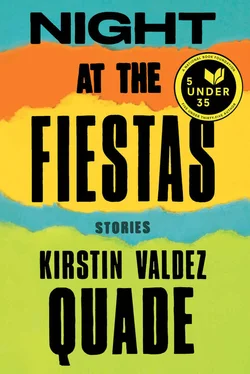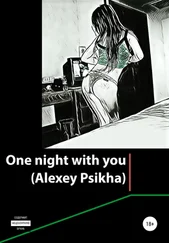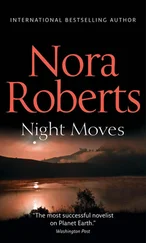Instead of invigorating the parish, though, Father Leon’s arrival had strained its atmosphere. “Would you believe he told me to type up his homily?” Collette had hissed, thrusting a legal pad into Father Paul’s chest. “Who does he think he is?”
“I’ll talk to him,” Father Paul had promised, but the same day he’d drawn Crystal aside and asked her to type it. “Please. As a favor to me.” So, ever since, it had fallen to her to decipher Father Leon’s slanted, feminine cursive. Each time Crystal handed Father Leon the printed pages, dense with abstractions and biblical quotations, he murmured a wooden thank-you without looking at her, already scanning his words.
Rather than sticking to love and brotherhood and the primacy of conscience, Father Leon went right for the hot-button issues, criticizing the permissiveness of American society. “Tolerance of sin is not a Christian virtue, and homosexuality is a sin, full stop,” Father Leon had told the congregation during an early weekday Mass. “Even in this house of God, I can smell the stink of Satan. He has found purchase in the hearts of some gathered here today.” Crystal pictured him scowling down from the pulpit in his cassock, looking like an unpleasant child forced to play dress-up.
There had been very few people present, but one of them was the president of the Altar Society, whose fourteen-year-old grandson was gay. She’d stormed into the office in a rage. “The stink of Satan? Shame on him,” she told Father Paul. “God forgive me, but that man doesn’t belong here.”
“He’s young, he’s full of ideas. He’s getting his sea legs,” Father Paul had said, looking fretful. “We’re lucky to have him, with so few young men entering the priesthood.”
Father Paul had begun to show signs of tension: the oversleeping, for one. He also seemed to have amped up his benevolence, as if to compensate for Father Leon’s coldness. While Father Leon stayed shut away in his study, Father Paul always seemed to be lying in wait for Crystal when she came to clean, ready with a smile or a kind word. He was lonely, maybe, Crystal thought, or maybe, with Father Leon chipping in, he just had less to do. Over and over he offered her help, over and over he brought up Reconciliation, as if he had an urgent personal stake in her salvation.
So, after months of putting it off, she’d gone to confession. But there, in the dark confessional, something had happened: Crystal had actually felt bad about not having been a virgin since she was sixteen, had almost believed that sex wasn’t completely ordinary. The sudden sense of her own remorse had made her words waver, and she was overcome by the vastness of her insult to God. She had believed truly, as she never had before, that Father Paul — this man whose dishes she washed and laundry she folded, who left drops of urine on the toilet seat — could deliver her apology to God. She’d caught her breath and felt tears burn her eyes, until, from the other side of the screen, Father Paul had dropped into his most soothing voice. “We can hate the sin but love the sinner.”
Crystal must have been seeking punishment, humiliation, shame. She must have been trying to hold tight to her guilt or to shock him out of his infuriating tenderness, because what else could explain what came out of her mouth next? “But Father, it wasn’t just regular sex. He went in behind, too.”
There was a long, terrible silence. Beyond the confessional, the empty church breathed and creaked. Outside, a motorcycle roared past. Crystal gripped one hand with the other. Finally, she heard the unsticking of lips and Father Paul said, “Consider this a new chance, and ask God to help you be the mother your babies deserve.”
Confession was confidential, of course, and Father Paul gave no sign that he knew who had been on the other side of the screen — and who knows, maybe he didn’t, though he’d have to be a fool not to — but Crystal couldn’t stand to be around him for weeks afterward. She felt ambushed and stupid. In the office, she kept her head behind the computer monitor when he passed through. Most afternoons Father Paul had appointments, so she cleaned the rectory when he was out.
Really it was a miracle that she’d managed to avoid him for as long as she had. But on Friday, as Crystal was putting the rags and detergents under the sink, Father Paul had come into the freshly mopped kitchen. He’d leaned against the counter and watched her. “You must miss the father,” he’d said, and Crystal had had to sink back on her heels and nod politely.
Father Paul furrowed his brow, and the creases went all the way up his bald red head. “Even if it wasn’t the right partnership, it must pain you to be embarking on this alone. But we’re here for you.” His voice was insistent. “The parish will stand by you and your children.”
Father Paul paused. He seemed to be thinking something over, and, with a sense of vertigo, Crystal imagined him imagining her in the throes of all sorts of mortifying, sweaty exertions.
Then he crossed the damp linoleum — leaving dull footprints — and dug in his pocket. He presented her with a laminated prayer card of the Santo Niño de Atocha. “I’ve been wanting to give you this.”
Crystal turned the card in her hand, flushing. The Santo Niño: Christ Child with long dress and pilgrim’s staff, dark curls tucked under wide-brimmed hat, walking under the stars across mesas and winding among piñon. He walked so far and so long, searching for miracles to perform, that he wore the soles of his shoes to nothing. In the chapel in Chimayo devoted to him, along with prayers and petitions and milagros, people left him children’s shoes — knit booties and beaded moccasins and sneakers and patent-leather Mary Janes scuffed at the toe.
“Thanks,” she mumbled.
Father Paul smiled with relief. He waved her away, pleased with himself. “You should pray with your babies. They can hear you, you know.” He stood smiling at her for another torturously long moment, then left.
Crystal gripped the card, enraged. Who was Father Paul to tell her that her life might be saved by a child? What could he possibly know about being trapped forever by your own stupid biology? Or about the defeat of moving home, where every night your mother was on the living room couch, suit skirt unzipped, watching a game show and eating microwaved hash browns slathered in red chile, her smelly panty-hosed feet on the coffee table?
Heartsick, Crystal thought of her old apartment, quiet and hers alone. Maybe she’d never wanted escape, college, a future, she thought bitterly. Maybe some part of her had been seeking a comforting narrowing of possibilities, an excuse to give up on her life. If this was all life was — working in the office of a small Santa Fe parish, living at home with her mother and twin babies — then it was at least manageable.
She had thrown the prayer card out, right there in the kitchen trash. She had slammed the back door, leaving the little Santo Niño with his girlish misty eyes gazing up, daring Father Paul to find him.
NOW, AS CRYSTAL CROSSED the parking lot toward the rectory, she hoped that he hadn’t. She’d been bratty, throwing out his gift. Because what would she have preferred? To be scolded? To be made to sit facing the congregation each Sunday during Mass, the way pregnant girls were punished in the old days?
The wind was blowing, and leaves and dust skittered across the blacktop. It was late fall now, chilly, but Crystal was sweating through her shirt. Pregnancy had made her clammy and zitty and fat.
She flapped her arms, willing the dark spots to dry, and pushed open the back door of the rectory. She was greeted by the familiar hush and the smell of old cooking. On the stove were the gray remains of a pan-fried steak; on the counter, a sticky ice cream carton. The sink was full of dishes — couldn’t they just put them in the dishwasher?
Читать дальше












